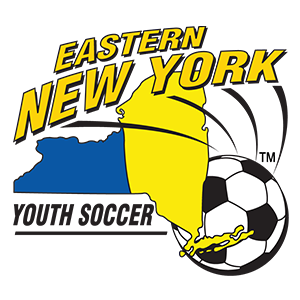By Tim Bradbury, Director of Coaching Instruction, Eastern New York Youth Soccer Association
I recently read a report published by Nike with a great deal of input from the United States Olympic Committee. Typically, I start most educational offerings with the alarming statistic that 70% of youth players will quit soccer by 13 years of age. The new report now allows me to add a direr, yet true fact. For the first time in history, due to a large part in the decline of levels of physical activity, today's kids will die five years younger than our generation. With figures and realities like these, coaches and parents have to face the truth that we are getting it wrong.
Many of the articles I have recently presented have examined the way I believe coaches need to develop, and change their approach. An essential part of this development must be their interaction and communication with the soccer parents. For many reasons a large number of “professional trainers” view parents as the enemy and simply avoid having to deal with them. The stories of the actions of a few crazy parents quickly get portrayed as the norm. There are a number of undeniable certainties that we all need to recognize:
1. Soccer parents have a vital role to play in the development of their child within sport.
2. Alienating soccer parents results in the drastic figures shown above.
3. Parents need to be shown what their role is, so they avoid attempting to take on the role of personal coach for their child.
4. If we are going to affect the issues presented in my first paragraph, coaches and parents need to figure out how to work as a team.
I have spent considerable time in the last three months exploring what parent education programs are available within the United States, and within the next six months hope that Eastern New York via its educational program and instructional team will have education offerings just for parents. As we evolve to this point, I invite all the soccer parents reading this to celebrate the fact that your kids need you and that you are an essential part of their soccer growth. As certain as this truth is, it is similarly true that they do not want you as a coach or overzealous critic that butchers them after every game.
As a very basic guide, I would encourage all the parents reading this to place the following at the core of their actions. In reading the advice given, please recognize that I have nothing but genuine admiration for the enormous amount of love that American parents display for their children.
1. After every game present unconditional love and support at the fore with the simple sentence, “I enjoyed watching you play today"
2. Work on becoming a very good listener. They really want to come to you with problems from practice, teammate issues, how to please their coach etc. BUT they have to trust you will not over react.
3. Learn about the game. Read articles and watch it. If you become an educated observer, they will trust you even more.
4. Carefully consider how your sideline behavior makes them feel. No youth player enjoys having the loudmouth parent or grandparent that has to be heard throughout the game.
5. Learn to applaud the process rather than the product.
The process refers to the training and effort your children put into learning the game. It means celebrating their failures and their growth in terms of skill development before anything else.
Parents should avoid only talking about and praising the product. A win or loss in a game. I firmly believe that it is in this area of process vs. product that many parents get lost.
6. Intrinsic v extrinsic desire. This is linked closely with the point above. Parents must work diligently on helping their children develop a powerful intrinsic desire to play. With a powerful intrinsic desire, they will wish to play for the joy of playing. They will celebrate their work, their efforts and the growth from their failures. They will play, and train simply out of a desire to do so and never be told to go to practice.
This type of internal desire develops habits and attitudes diametrically opposed to those of extrinsic rewards. If players need extrinsic rewards, trophies, dinner and ice cream after a win and $ for goals, applause and praise only after a win, they quickly lose interest and the desire to learn––unless success comes often!!! Without the awards, they lose the desire to train and play.
If all the parents reading this make a concerted effort to work on the six points above, I believe you will see a definite change in how your child talks to you about their sport and ultimately your relationship with them will blossom.

